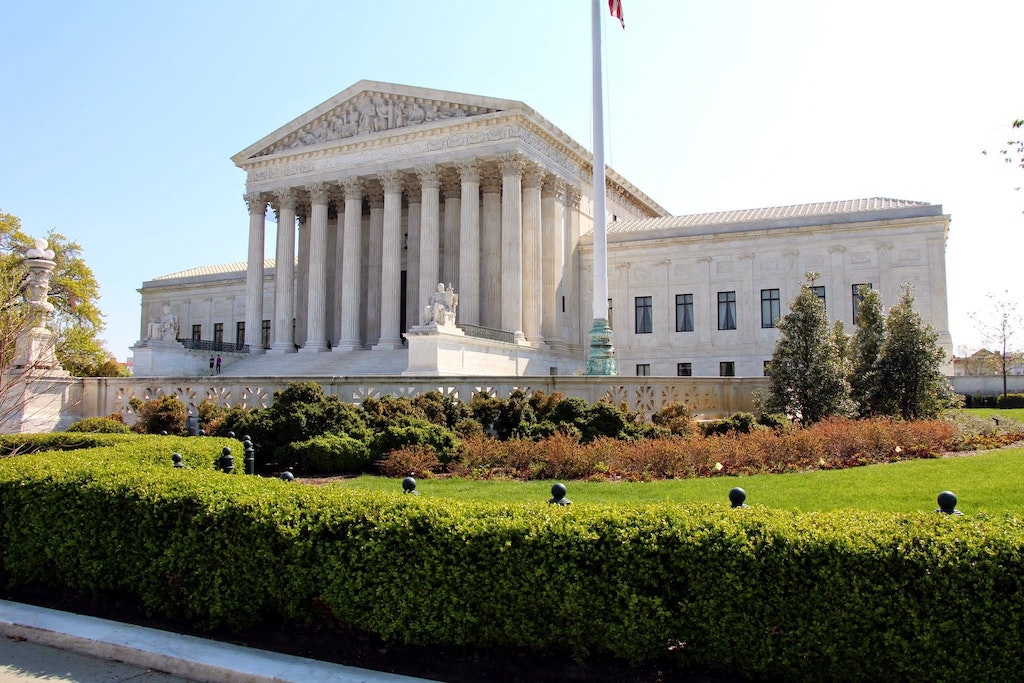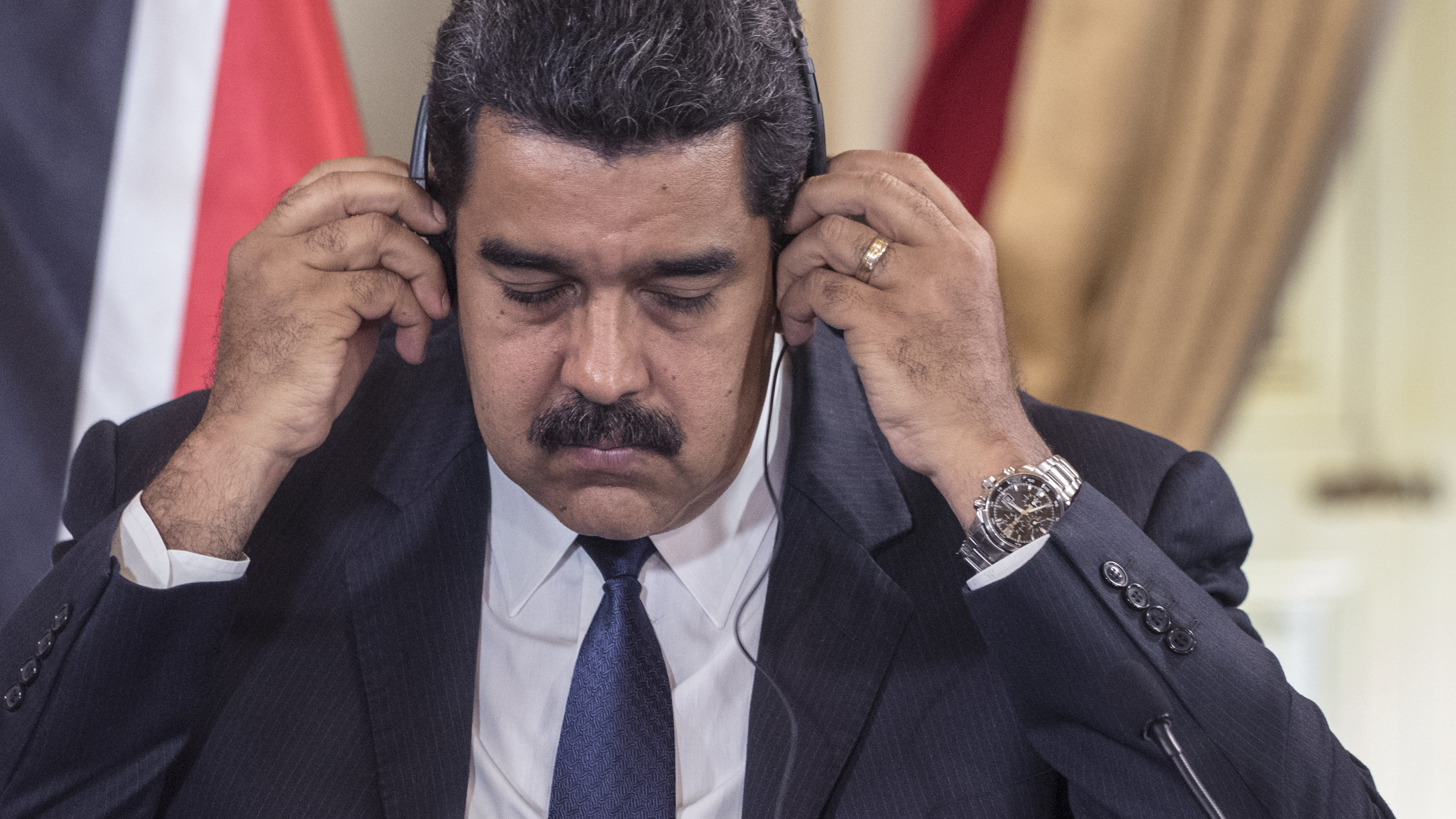Could a U.S. State Sue Russia for Election-Related Hacking Under the Supreme Court’s Original Jurisdiction?
The Senate intelligence committee has said that a small number of states had their election computer defenses breached by Russian hackers in 2016. Assume, as the report writes, that those hackers were linked to the Russian government. Could the states whose systems were breached sue Russia under the Supreme Court’s original jurisdiction?

The Senate intelligence committee has said that a small number of states had their election computer defenses breached by Russian hackers in 2016. Assume, as the report writes, that those hackers were linked to the Russian government. Could the states whose systems were breached sue Russia under the Supreme Court’s original jurisdiction?
I have no reason to think any state is considering doing this. For now, it is just a fed-courts thought experiment. But as foreign governments find new ways to use technology to harm states and individuals in the U.S., we can expect creative litigation tactics to follow.
Article III, Section 2, Clause 2 of the Constitution provides that, “In all Cases affecting Ambassadors, other public Ministers and Consuls, and those in which a State shall be Party, the supreme Court shall have original jurisdiction.”
The phrase “those in which a State shall be Party” refers back to Article III, Section 2, Clause 2 of the Constitution, as the Supreme Court reasoned in State of California v. S. Pac. Co. The clause extends the judicial power of the United States to (among others) controversies “between a State, or the Citizens thereof, and foreign States, Citizens or Subjects.” Thus, cases between states and foreign states come within the court’s original jurisdiction.
Indeed, the First Judiciary Act from 1789 included cases between a state and a foreign state in the Supreme Court’s exclusive jurisdiction: “the Supreme Court shall have exclusive jurisdiction of all controversies of a civil nature, where a state is a party, except between a state and its citizens; and except also between a state and citizens of other states, or aliens, in which latter case it shall have original but not exclusive jurisdiction.” Although this language does not explicitly mention foreign states, the phrase “where a state is a party” unquestionably includes cases between foreign states and domestic states, because Article III, Section 2, Clause 2 explicitly includes cases between states and foreign states. The original Senate version of the First Judiciary Act, drafted by Oliver Ellsworth, confirms the point. As Tom Lee describes, it provided that “the supreme court shall have exclusive jurisdiction of all controversies of a civil nature, where any of the United States or a foreign state is a party.” Cases between states and foreign states are thus within the original jurisdiction of the Supreme Court, and the First Judiciary Act put them within its exclusive jurisdiction.
Now for the difficulties. There are three: current statutes; the issue of consent; and whether the Supreme Court would want to exercise any jurisdiction that it has.
Today, cases between states and foreign states are neither in the court’s exclusive jurisdiction nor in its original jurisdiction, as defined by federal statute, namely 28 U.S.C. § 1251. Instead, the district courts have original (but not exclusive) jurisdiction over cases against foreign states pursuant to 28 U.S.C. § 1330(a). What, then, is the Supreme Court’s original jurisdiction when original jurisdiction is not conferred by federal statute? The high court has long reasoned that its original jurisdiction does not depend upon a statutory grant of power. For example, in Kentucky v. Dennison, the court reasoned that:
it has been the established doctrine upon this subject ever since the act of 1789, that in all cases where original jurisdiction is given by the Constitution, this court has authority to exercise it without any further act of Congress to regulate its process or confer jurisdiction, and that the court may regulate and mould the process it uses in such manner as in its judgment will best promote the purposes of justice.
And, more recently, in California v. Arizona, the court said: “The original jurisdiction of the Supreme Court is conferred not by the Congress but by the Constitution itself. This jurisdiction is self-executing, and needs no legislative implementation.”Supreme Court Rule 17.1 suggests as much. It provides: “This Rule applies only to an action invoking the Court’s original jurisdiction under Article III of the Constitution of the United States. See also 28 U. S. C. § 1251 and U. S. Const., Amdt. 11.” Note the “see also” reference to § 1251, as opposed to phrasing like “as provided by.”
To be clear, the argument that the Supreme Court has original jurisdiction accepts Congress’s power to vest the lower federal courts with concurrent jurisdiction. Note as well that 28 U.S.C. § 1330 does not purport to vest district courts with exclusive jurisdiction, meaning that state courts may exercise jurisdiction—subject to the foreign state’s generous power to remove such cases. There is no reason to think that the Supreme Court could not exercise its original jurisdiction, at least so long as the requirements of the Foreign Sovereign Immunities Act (FSIA) are met. 28 U.S.C. § 1330 limits the subject matter jurisdiction of the district courts to cases in which an FSIA exception to immunity applies, but the FSIA also makes foreign states immune from suits in state and federal court unless an exception applies. Although Congress apparently cannot withdraw the original subject matter jurisdiction of the Supreme Court, it can determine the suability of foreign nations under its power to regulate foreign commerce, as the court held in Verlinden v. Central Bank of Nigeria.
A second issue is that of consent by the foreign state. The Supreme Court held in Monaco v. Misssissippi that a state cannot be sued by a foreign state without the state’s consent, even though the 11th Amendment does not bar jurisdiction over such suits. In the opposite case—a U.S. state suing a foreign state—there would be an even stronger argument that the foreign state’s consent would be necessary: A U.S. state has arguably already furnished such consent by becoming part of the union, but no such argument is available for foreign states. Moreover, James Madison and John Marshall both said during the Virginia ratification debates that suits between states and foreign states could not be heard without consent. Here, the best (although not perfect) argument in favor of jurisdiction is that if the foreign state has engaged in conduct that comes within the FSIA, it has given its “consent” to suit.
Even if the Supreme Court could exercise its original jurisdiction over such a case, it would have good reason to decline to do so, particularly in light of the concurrent jurisdiction vested in the district courts. The justices would no doubt benefit from the multiple rounds of briefing and from the lower courts’ reasoning as the case made its way from the district court through the court of appeals.
Yet there may be particularly strong reasons for the Supreme Court to exercise its jurisdiction were a state to move for leave to file. Cases between states and foreign states pose foreign policy risks. One potentially tricky issue, for example, is jurisdictional discovery, which is very difficult to correct through appeal. Lower courts have struggled to strike a balance between the potential immunity from suit of the foreign state and the plaintiff’s obvious need for discovery to prove that an exception to immunity applies. In NML Capital v. Argentina, the Supreme Court held that immunity issues in cases brought under the FSIA are governed by the standard discovery rules. But the application of Federal Rule of Civil Procedure 26(b)(1)’s proportionality test to issues such as these is not clear. Nor is the application of comity interests and other sources of law to which the Supreme Court referred in footnote 6 in NML Capital.
Additionally, any such case would likely raise important questions about the tort exception to the FSIA, as Grayson Clary and I have each discussed—an issue upon which some lower courts have already ruled, and which is likely to reach the Supreme Court at some point in any event. To be clear, these issues are not unique to cases brought by states. They also arise in cases brought by private parties. But the political stakes may be (and should be) higher when a state itself has allegedly suffered a targeted harm from a foreign state, especially when that alleged harm is directed at a core attribute of state sovereignty.
For now, the hypothetical I have posed is just that—a hypothetical—and one that may make lawyers reach for their copy of Hart & Wechsler. But as governments become more technologically sophisticated in their ability to intervene in U.S. elections and otherwise, we are likely to see more litigation against foreign sovereigns in a variety of fora—maybe even under the original jurisdiction of the Supreme Court.


-2.jpg?sfvrsn=f979c73d_6)

